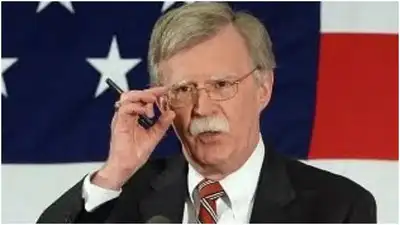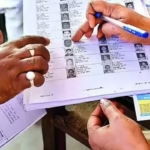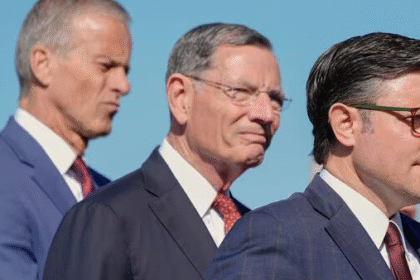FBI Raids Ex-NSA John Bolton’s Home in U.S. National Security Probe
Washington, D.C. thrives on power, secrecy, and perception. Every move by law enforcement agencies is analyzed not just for its legal significance but also for its political reverberations. Against this backdrop, the recent Federal Bureau of Investigation (FBI) raid on the home of former National Security Adviser John Bolton has triggered shockwaves in political, diplomatic, and media circles.
The development is unprecedented in modern American politics. Bolton, a towering figure in U.S. national security policy for decades and a vocal critic of former President Donald Trump, now finds himself under investigation in a national security probe. For a man once at the pinnacle of intelligence briefings and war-room decisions, the spectacle of federal agents searching his residence is nothing short of extraordinary.
The raid is not just about one individual; it encapsulates the fragility of power, the complexity of accountability, and the evolving role of law enforcement in safeguarding national security.
John Bolton: A Brief Profile of the Man in the Storm
To understand why the raid matters, one must first grasp who John Bolton is.
- The Policy Hawk: Known for his hawkish foreign policy stances, Bolton served as U.S. Ambassador to the United Nations under George W. Bush and later as National Security Adviser under Donald Trump. He has long advocated for aggressive action against adversaries such as Iran, North Korea, and even a tougher stance toward Russia and China.
- The Critic: After leaving the Trump administration in 2019, Bolton emerged as one of Trump’s fiercest critics. His memoir, The Room Where It Happened, offered a blistering portrayal of Trump’s presidency and became a flashpoint in debates over loyalty, confidentiality, and accountability.
- The Insider-Turned-Target: For someone who once wielded influence over America’s national security apparatus, being the subject of a federal raid raises unsettling questions: what triggered this investigation, and what might it reveal about the inner workings of the national security establishment?
The FBI’s Role in National Security Probes
The FBI is not merely a domestic crime-fighting agency; it is also central to the protection of national security. Working alongside the Department of Justice (DOJ), it investigates issues ranging from espionage to classified information breaches.
A raid by the FBI is not a casual exercise—it typically reflects:
- Judicial Authorization: Search warrants must be approved by a federal judge, suggesting probable cause exists.
- Serious Allegations: The target is believed to hold evidence critical to ongoing investigations.
- Political Sensitivity: In cases involving high-profile figures, such raids are approved only after meticulous internal review to avoid accusations of partisanship or overreach.
In Bolton’s case, the national security angle raises the stakes. Did investigators suspect improper handling of classified material? Was there a link to foreign entities? Or did the probe stem from broader accountability efforts in the post-Trump era?
A Political Earthquake
The raid has ignited fierce debate in Washington:
- Supporters of Accountability: Some argue that no individual, regardless of rank or past service, should be above the law. If Bolton mishandled classified materials or engaged in activities compromising U.S. security, a federal investigation is both justified and necessary.
- Critics of Timing: Others question whether the raid is politically motivated, pointing to Bolton’s strained relationship with Trump and his controversial role in shaping foreign policy decisions.
- Media Frenzy: News channels and commentators are dissecting every angle, from the legal basis of the raid to its political implications for the 2024 election cycle and beyond.
The symbolism is powerful: a man once trusted with America’s most sensitive secrets is now under scrutiny by the very institutions he once commanded.
Bolton’s Criticism of Trump: A Factor in the Spotlight
Bolton’s outspoken criticism of Trump adds a combustible element to the story. His memoir painted Trump as erratic, self-serving, and dangerously uninformed about global affairs. He accused the former president of attempting to leverage foreign policy decisions for personal political gain.
This history complicates public perception of the raid. For Trump loyalists, the investigation may appear as a delayed vendetta against a “traitor” who turned against their leader. For Trump critics, it could be a reminder that the Trump years left behind a tangled web of legal, political, and national security questions still unresolved.
Either way, the Bolton raid is now inseparable from the broader narrative of Trump’s contested legacy.
National Security Investigations: The Legal Context
U.S. law provides multiple avenues for national security investigations, including:
- The Espionage Act: Often invoked in cases involving classified information leaks.
- The Foreign Agents Registration Act (FARA): Requires disclosure of lobbying or advocacy on behalf of foreign governments.
- Obstruction of Justice Statutes: Relevant if there is evidence of interference with federal investigations.
- Presidential Records Act: Although primarily applied to presidents, the spirit of this law—proper handling of sensitive records—has shaped debates about official accountability.
Without official confirmation of the exact allegations, speculation abounds. Still, the FBI’s involvement signals that the matter is serious, complex, and potentially tied to classified information.
International Reactions
The Bolton raid has not gone unnoticed abroad. International media outlets have highlighted the development as evidence of the intensifying scrutiny of America’s political elite.
- Allies in Europe expressed cautious interest, noting that Bolton had played a decisive role in shaping U.S. foreign policy toward NATO, Russia, and the Middle East.
- Rivals such as Iran and North Korea were quick to recall Bolton’s hawkish calls for regime change, suggesting that his current predicament is a “lesson in accountability.”
- Global Analysts argue that the raid underscores how even seasoned national security veterans are not immune to domestic legal processes, a sharp contrast with authoritarian systems where such figures remain untouchable.
The Human Dimension
Beyond politics and law, the raid has a deeply personal impact on Bolton himself. Friends and former colleagues describe him as a man of conviction, uncompromising in his views, and often polarizing. To see his residence searched by federal agents is a humbling spectacle—one that underscores the precariousness of public life in Washington.
For Bolton’s family, the ordeal is equally daunting. A home once symbolizing achievement and prestige is now associated with suspicion and federal inquiry. This personal toll reminds us that behind every headline is a human story of reputation, resilience, and reckoning.
Why This Matters for U.S. Democracy
The Bolton raid is not an isolated event—it is part of a broader debate about the boundaries of power and accountability. From the Mar-a-Lago raid on Trump to investigations involving cabinet officials, the DOJ and FBI are increasingly being asked to walk a tightrope between justice and politics.
For democracy, the message is clear: institutions must be strong enough to investigate the powerful without fear, but also careful enough to avoid the perception of political weaponization.
The outcome of Bolton’s case will therefore reverberate far beyond one man’s reputation. It will test the credibility of U.S. institutions in upholding the rule of law while navigating the minefield of partisan politics.
The FBI’s raid on John Bolton’s home marks a turning point in the intersection of law, politics, and national security. It raises difficult questions: What did investigators hope to find? Why now? And what does this mean for the future of accountability in the United States?
As the probe unfolds, one thing is certain—the story is far from over. The next chapters will reveal not only the legal details of the case but also its implications for America’s global image, domestic politics, and the fragile trust between citizens and institutions.
Legal Shadows, Political Fault Lines, and Historical Parallels
The FBI raid on former National Security Adviser John Bolton’s residence has already become one of the most discussed law-enforcement actions in recent U.S. history. While Part 1 explored the background of the raid, its symbolism, and its immediate fallout, this section focuses on three critical dimensions: the possible legal charges Bolton could face, the historical parallels with past U.S. investigations of senior officials, and the political responses emerging from both sides of the aisle. Together, these aspects shed light on why the Bolton case is more than an isolated legal probe—it is a test of America’s democratic fabric.
Possible Legal Charges: What Could Be at Stake?
The Department of Justice has yet to release formal charges, but the fact that the FBI conducted a search indicates that probable cause exists that evidence tied to a national security violation is at Bolton’s home. Based on precedent and the nature of his career, several possibilities emerge:
- Mishandling Classified Information
As National Security Adviser, Bolton had access to some of the most sensitive intelligence on counterterrorism, nuclear programs, and foreign adversaries. If investigators suspect he improperly stored, shared, or removed classified documents, this could fall under the Espionage Act of 1917 or related statutes. - Unauthorized Disclosure to Foreign Entities
Bolton has maintained relationships with diplomats, think tanks, and foreign policy organizations worldwide. If evidence suggests he disclosed classified information without authorization, it would trigger serious national security concerns—even if unintentional. - Violation of Record-Keeping Protocols
Similar to controversies involving former President Trump and former Secretary of State Hillary Clinton, improper retention or destruction of official records could invoke the Presidential Records Act or related administrative laws. - Obstruction of Justice
If investigators believe Bolton attempted to conceal, alter, or withhold evidence, obstruction charges could be added. Such allegations, even if secondary, often compound legal exposure.
At this stage, speculation remains cautious. But the range of possible charges illustrates why the raid has rattled Washington: it suggests that investigators are exploring not just minor administrative lapses but potentially weighty national security breaches.
Historical Parallels: Bolton Is Not Alone
History shows that Bolton is far from the first high-ranking U.S. official to come under the scrutiny of law enforcement. Several cases provide context:
- David Petraeus (2012–2015): The former CIA Director resigned after revelations that he shared classified information with his biographer and lover. He eventually pleaded guilty to a misdemeanor charge of mishandling classified material.
- Sandy Berger (2003–2005): The former National Security Adviser under President Bill Clinton admitted to removing classified documents from the National Archives. He paid a fine and lost his security clearance.
- Hillary Clinton (2015–2016): Though never formally charged, the investigation into her use of a private email server dominated headlines and remains politically contentious.
- Donald Trump (2022–2023): The Mar-a-Lago raid over classified documents sparked fierce debates over presidential accountability and the scope of the Espionage Act.
Each case followed a familiar cycle: an initial revelation, a firestorm of political commentary, investigations into the handling of classified material, and ultimately, outcomes shaped as much by law as by politics. Bolton’s situation is now the latest chapter in this uneasy history.
The Republican Response: A Divided Party
The Republican Party’s response to the raid has been anything but uniform.
- Trump Loyalists: For the faction still closely aligned with former President Trump, Bolton is regarded as a turncoat. His memoir and public criticism of Trump made him deeply unpopular in MAGA circles. For them, the raid is almost karmic justice. Some commentators openly suggested that Bolton is finally facing accountability for undermining Trump.
- Traditional Conservatives: Establishment Republicans, however, are far more cautious. While they may disagree with Bolton’s hawkish policies or his anti-Trump rhetoric, they are wary of cheering federal investigations against senior conservative figures. They fear the precedent it sets—that law enforcement can be weaponized against political adversaries.
- Libertarian Voices: A smaller libertarian wing within the GOP has seized the moment to argue against overreach by federal agencies. For them, the raid represents the dangers of unchecked government surveillance and policing powers.
Thus, within the Republican ecosystem, the Bolton raid has both exposed fault lines and deepened ideological divides.
The Democratic Response: Opportunity and Restraint
For Democrats, the raid is an opportunity—but one they are handling carefully.
- Rule of Law Emphasis: Democratic leaders emphasize that the FBI is acting under judicial oversight and that no one, regardless of status, is above the law. They contrast this with Republican criticisms of investigations into Trump, arguing that the law must apply equally.
- Avoiding Overreach: At the same time, Democrats are careful not to celebrate too loudly. Bolton, after all, is not a political rival but a former official with decades of public service. Excessive triumphalism could backfire by framing the raid as partisan.
- Strategic Messaging: Instead, Democrats are using the moment to reinforce themes of institutional accountability, national security seriousness, and respect for legal processes—a counter-narrative to GOP claims of politicization.
For Democrats, the Bolton raid is less about Bolton himself and more about strengthening the argument that the justice system is resilient enough to investigate anyone.
Media Reactions: The War of Narratives
Unsurprisingly, U.S. media outlets have framed the raid in sharply contrasting ways:
- Conservative Media: Outlets such as Fox News and Breitbart portray the raid as either a deserved reckoning for Bolton’s betrayal of Trump or as another example of government overreach.
- Liberal Media: Publications like The Washington Post and MSNBC emphasize the gravity of a national security investigation, framing the raid as proof of the FBI’s impartial enforcement of law.
- Centrist Analysts: Some outlets adopt a more cautious approach, warning against premature conclusions until formal charges or findings are announced.
The competing narratives underscore how the raid is not just a legal matter but also a cultural battleground, shaping perceptions of justice, partisanship, and institutional credibility.
International Observers: Watching Closely
Globally, the Bolton raid has generated significant attention.
- European Allies: Analysts in NATO countries note the irony of Bolton—long a champion of transatlantic security—becoming the subject of a domestic investigation. Many European diplomats have privately expressed concern about the instability of U.S. politics and its impact on alliance cohesion.
- Middle East Rivals: Iranian state media was quick to highlight the raid, portraying it as poetic justice against a man who once pushed hard for military strikes on Tehran.
- Asia’s View: In China and North Korea, the raid is framed as evidence of internal weakness within America’s national security establishment. State media in Beijing has used the incident to question U.S. credibility in promoting rule of law abroad.
Thus, the Bolton case is not just a domestic affair—it reverberates across global capitals, shaping perceptions of America’s strength, consistency, and moral authority.
Institutional Trust: The FBI Under the Microscope
While Bolton’s personal fate remains uncertain, the FBI itself is also on trial in the court of public opinion. Its reputation has been battered in recent years, with critics on both the left and right accusing it of political bias.
- Republicans accuse the Bureau of unfairly targeting conservatives.
- Progressives accuse it of historically shielding powerful figures or failing to act quickly enough against right-wing extremism.
- Centrists worry about the erosion of trust in a vital institution tasked with protecting both law and national security.
The Bolton raid intensifies this debate. If handled with transparency and fairness, it could help restore confidence. But if seen as politically tainted or legally flimsy, it risks deepening the polarization that already undermines American governance.
The Human Side of Accountability
Beyond geopolitics and partisanship lies a quieter, more human story. For Bolton himself, the raid represents not just a legal ordeal but a reputational one. His legacy—as a diplomat, strategist, and author—is now overshadowed by images of FBI agents entering his home.
For his critics, this is a fitting reckoning. For his allies, it is a tragedy of perception, regardless of eventual legal outcomes. For ordinary Americans, it is a reminder that power offers no immunity from vulnerability.
In this sense, the raid is less about Bolton as a person and more about the fragility of prestige in a democratic system that insists—at least in principle—that accountability must prevail over status.
Also Read : EC’s Voter Roll Revision in Bihar Clashes with 2003 Precedent, Records Show








